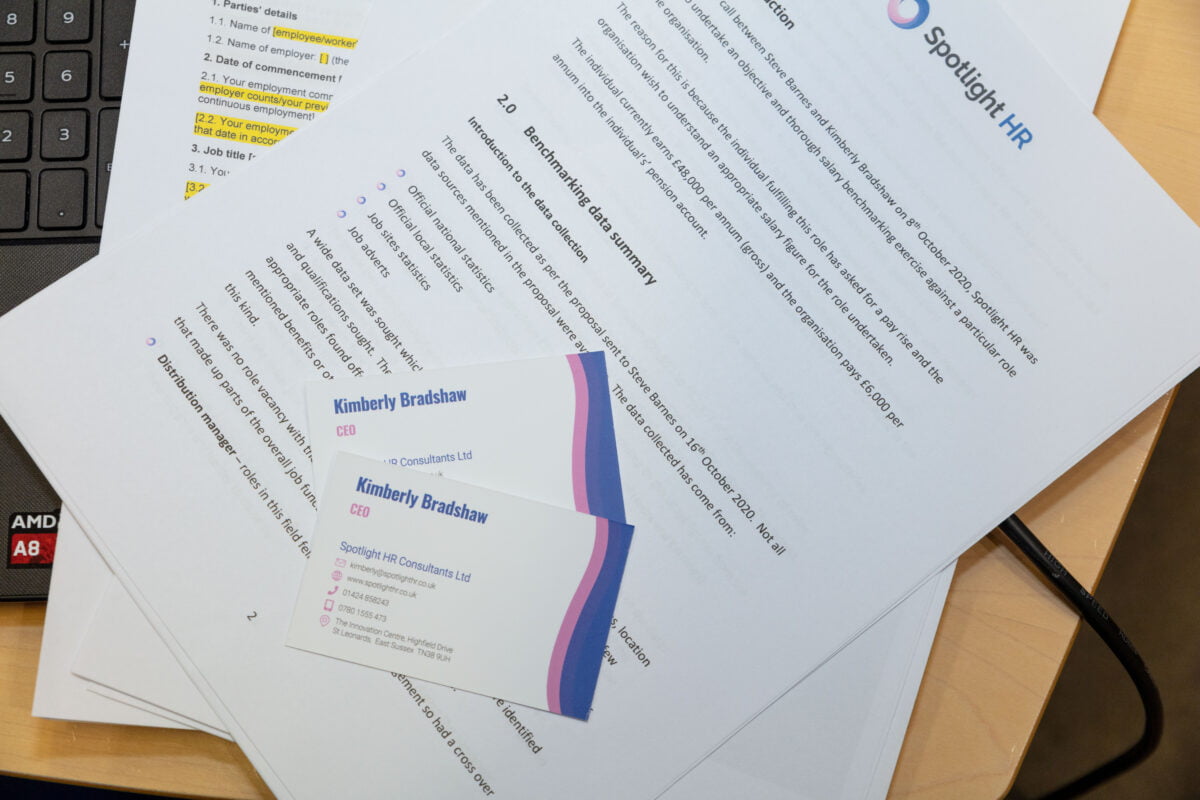Business World Of HR In June 2023 – Absence Stats/Monitoring Could Save You £££s, Women’s Workplace Health Advice + Communication
JUNE 2023. By Kimberly Bradshaw (CEO, Spotlight HR.)
Welcome to our June 2023 roundup. The world of HR, as always, provided many take-homes for SMEs – from absence statistics and monitoring to save you £££s, to advice on improving woman’s health in the workplace – and how every communication when reaching a settlement, even those off record, can cause problems if not properly approached. So, let’s get stuck in…

Are absence rates costing you a packet – New data suggests they might be!
The latest survey carried out by XpertHR on absence rates and costs revealed some alarming statistics. The main take-home was how a whopping 70% of organisations do not monitor the cost of sickness absences. With a better understanding of how your company is performing, you can put measures in place to manage and optimise employee attendance. The survey flagged three main in-house issues around implementing absence control in the workplace:
- Lack of resource
- Lack of management training
- Lack of understanding of absence management
Getting help to monitor and promote attendance can be a game changer to SME businesses’ bottom line. Please do get in touch for some pointers and steps towards positive change.

Through the HR lens – Supporting women’s health in the workplace
The quiet suffering of female employees going through the menopause or monthly menstruation cycle has now, finally, become a mainstream topic. Here we look at what the latest measures the Institution of Occupational Safety and Health (IOSH) introduced in June, urging businesses to adopt as new workplace standards.
The British Standards Institute has introduced the Menstruation, Menstrual Health, and Menopause in the Workplace standard to help organisations retain valuable staff. Encouraging employers to implement measures such as raising awareness, providing support, and reviewing workplace environments.
But why is this important?
Supporting women’s health at work can prevent skilled and valued employees from needlessly leaving roles. For extra information, here is a great toolkit explaining woman’s health issues Women’s health toolkit information.
Spotlight HR’s Top Tips on supporting female employees through Menopause and Menstruation:
As employers, we all want to get the most from our people, for them to be equipped to perform at their best. Menopausal hormone changes and monthly menstruation can be unbearable for many, many women. Finally, the light is being switched on to this suffering.
Recognising the impact of hormonal and menstrual health at work and promoting a culture of understanding and openness, helps women feel valued, supported, listened to, and understood within the workplace and could reduce absences. Introducing simple measures like having menstruation products in the loo could be a practical starting point. From an HR perspective, we recommend:
- Evaluating the need for a standalone menopause policy or integration into existing policies.
- Adapting the absence policy to accommodate menopause-related absences.
- Exploring adjustments to roles or working conditions to address performance issues related to menopause.
Need some advice? Spotlight HR are promoters of women’s health in the workplace.
Feel free to click through to find our other BLOGS about supporting women – or drop us a line for direct advice.
Employment Tribunal in focus – When can ‘without prejudice’ evidence be used?
This case illustrates how and when employee conversations impact settlement rulings.
When an employee began negotiations for his retirement package with his employers, he earmarked a large amount of unused holiday pay owed to him, totalling between 168 – 200 days. A settlement figure of £68,199.60 was outlined in draft discussions, but no agreement was reached following negotiations.
The employee was subsequently dismissed, and he issued a claim for unlawful deductions of this owed holiday payment. The employer objected, citing ‘without prejudice’ – which is a common law term about confidential communications kept off the record between employee and employer.
In this case, the ruling played in the favour of the employee, because at the time the settlement figure was put forward, regardless of the outcome being undecided – there was no dispute taking place, so ‘without prejudice’ was not justified.
What does this mean to you? Be aware that meetings and arrangements made during amicable employee negotiations can indeed be used as evidence further down the line. Our advice: get professional HR advice in place from the off, as pit holes can be extremely costly.
Contact us for dependable HR advice if you’re affected by any of these issues discussed this month. We are here to help.
![]()
